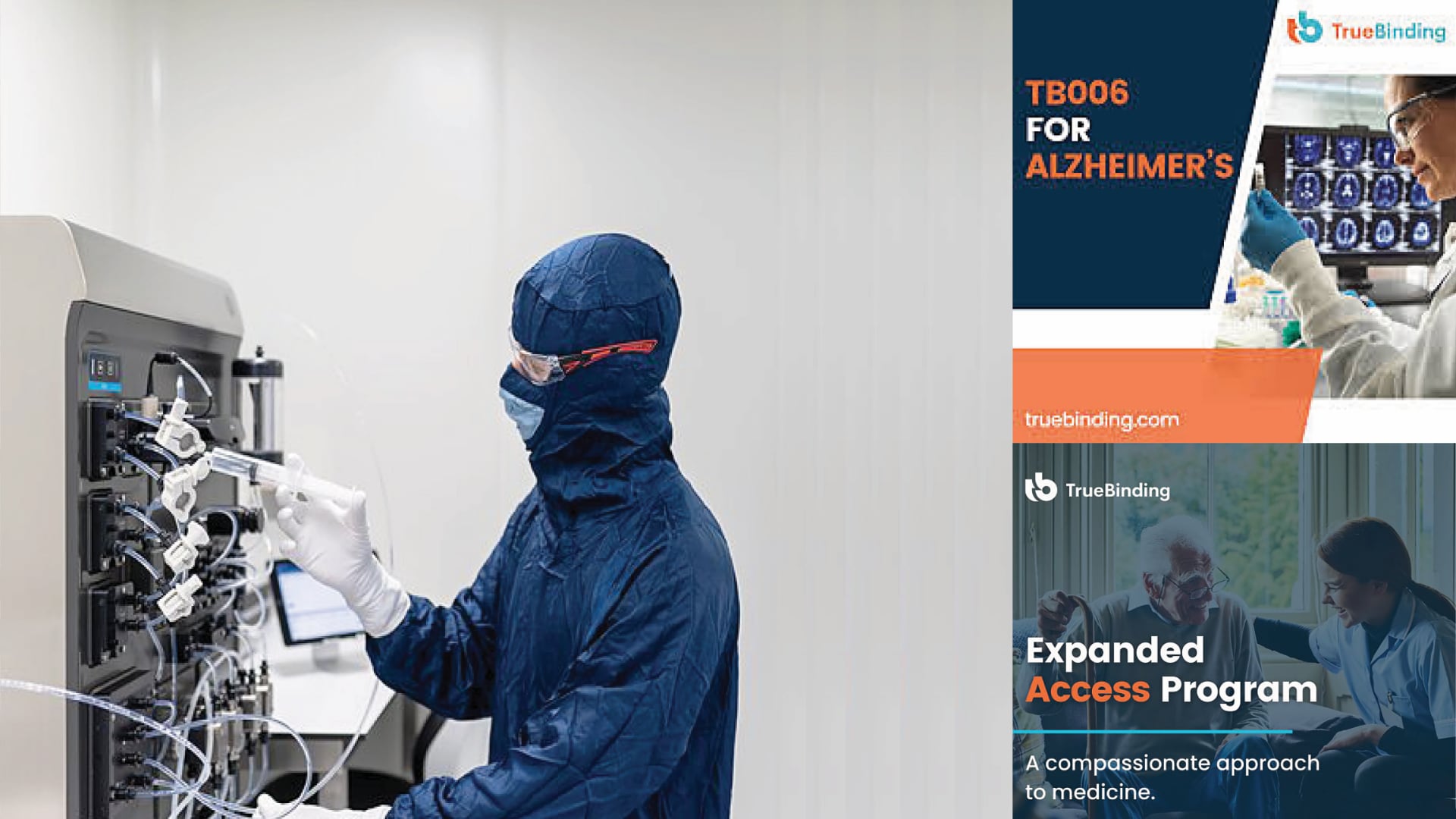About TB006 for Alzheimer's
TB006 is a groundbreaking, well-tolerated medicine offering a restorative and potentially anti-inflammatory approach to treating Alzheimer’s disease (AD) and a wide range of dementias. Developed as a monoclonal antibody, TB006 targets Galectin-3—a key protein involved in brain inflammation and the buildup of harmful plaques. By neutralizing this protein, TB006 may help reduce neuroinflammation, improve cognitive function, and slow the progression of memory loss and cognitive decline.
Currently being offered at Alzheimer’s Treatment Centers of America (ATCA) as part of an FDA-approved clinical trial, TB006 is one of more than 50 innovative therapies available to qualifying patients. For families like Herb and Beth’s, it represents not just another treatment, but a renewed sense of hope and a glimpse of life beyond the diagnosis.
Frequently Asked Questions
What is TB006 and how does it work?
Who is eligible to receive TB006?
TB006 is currently being administered as part of an FDA-approved clinical trial at ATCA. Eligible patients typically include those diagnosed with early- to moderate-stage Alzheimer’s or other forms of cognitive decline. A medical evaluation is required to determine qualification.




